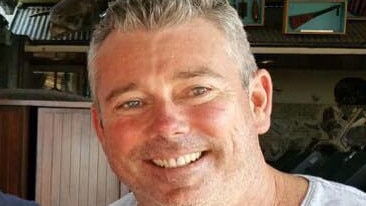Gold Coast shark attack: Aerial surveillance recommended, trial yet to happen
It’s a year since an investigation into the state’s shark control program recommended this measure, but it is still yet to be trialled.
QLD News
Don't miss out on the headlines from QLD News. Followed categories will be added to My News.
An investigation into the state’s shark control program recommended a trial of aerial surveillance along southeast Queensland beaches using drones and spotter planes – but the trial is yet to happen.
The 114-page document, Queensland Shark Control Program: Review of Alternative Approaches, was released last September and recommended the trial for beaches from the Gold Coast to Bundaberg where the water is clearest.
Gold Coast shark attack: Mick Fanning supports grommet surving near attack
Whales seek refuge in southern bay hours before shark attack
Gold Coast shark attack: Premier stands by shark control program after fatal attack
But the trial – which would have taken in beaches like Greenmount where real estate agent Nick Slater was fatally mauled on Tuesday – has not happened.
“The prevailing good water clarity in southern Queensland lends itself to trialling of highly effective aerial detection systems in the ... regions of Woongarra Coast, Rainbow Beach, Sunshine Coast, North Stradbroke and Gold Coast,” the report recommends.
“To maximise the likelihood of detecting dangerous sharks, a system could include multispectral cameras, shark recognition software and real-time transmittal of information to beach users either via lifeguards or Smart devices.

“Further, given that the effectiveness (against potentially dangerous sharks) of an aerial detection system is directly related to operating time ... (it) should include many flyovers of beaches each day.”
Planes, helicopters and drones have been used effectively in South Australia and Western Australia and were put in place following attacks involving great whites at popular suburban beaches.
The report said WA trialled baited drum lines for three months in 2014 after a fatal shark attack but did not continue with the program.
Instead, the state uses helicopters and drones and has built a series of beach enclosures to keep swimmers safe.
In South Australia, fixed wing planes and helicopters regularly patrol the metropolitan coastline, sounding alarms and circling sharks to warn swimmers there is a predator nearby.
The surveillance measures were introduced after two young men were mauled by white pointers at popular Adelaide beaches in 2004 and 2005.
Fisheries Minister Mark Furner did not respond directly about whether the State Government would trial an aerial surveillance program.
“Human life remains the top priority for the government and the Shark Control Program,” he said.
“We have not ruled out any options that could improve safety, however we will not act rashly to make rapid changes to a program that has served Queenslanders very well since 1962.
“I will be meeting with the program’s Scientific Working Group to discuss this week’s tragedy and discuss some of these proposals.”
Between 2001 and 2019, 3691 dangerous sharks were caught in nets and on drum lines along Queensland coastlines.
Of those, 2320 were tiger sharks, 1330 were bull sharks and only 41 were white sharks.
The vast majority of dangerous sharks were caught by drum lines, as opposed to nets.
Another 2746 sharks of other species – not classified as the “most dangerous” – were caught in that same period.
White sharks were more likely to be caught on Gold Coast beaches or around Stradbroke Island.
The biggest sharks caught in nets or on drum lines were tigers and white pointers – with tigers as large as 5.5m caught off the Capricorn Coast and whites up to 4.9m caught off the state’s southern beaches.
Originally published as Gold Coast shark attack: Aerial surveillance recommended, trial yet to happen
